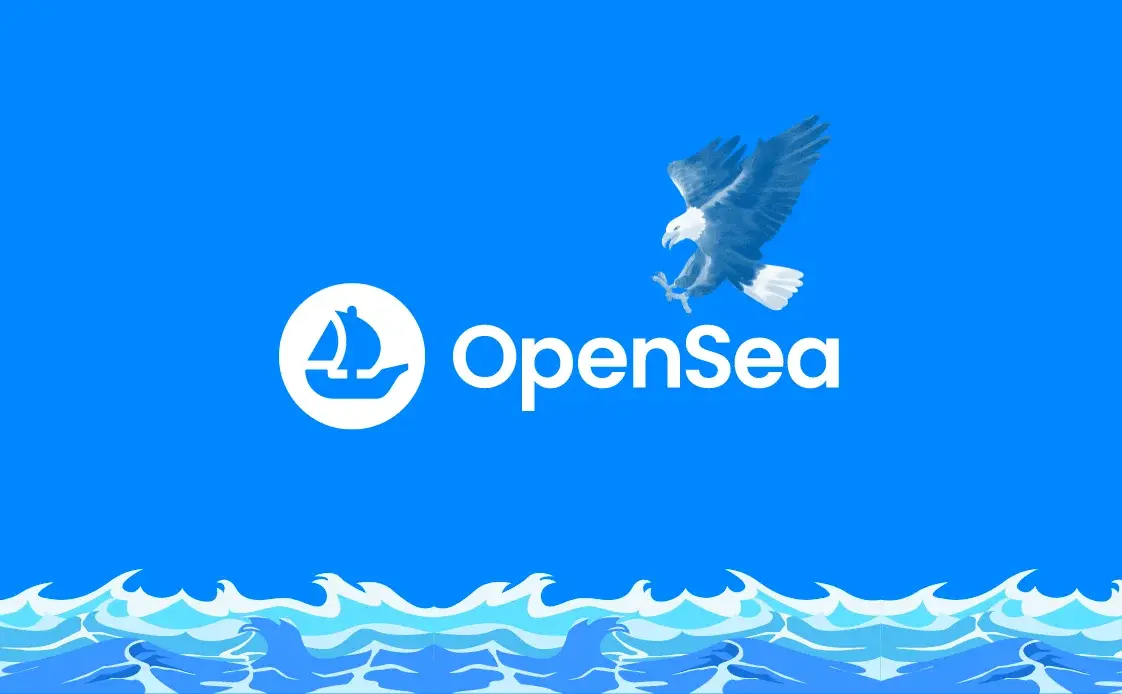Multicoin Partners: The Next Stop for NFT Market is Community-Led
Written by: Kyle Samani, Partner at Multicoin Capital
Compiled by: Amber, Foresight News
Why is the user experience on OpenSea and Magic Eden largely the same? Whether it's the features on the homepage or the way search results are presented, everything is very detailed. Or rather, why do the homepages of OpenSea or Magic Eden lack event information, live streaming entrances, or advertisements and information related to NFT games?
The answer lies in the historical development path that has shaped everything.
OpenSea was founded in 2018, at a time when there were only a few NFT collections on the market, such as CryptoPunks. CryptoPunks is a collection of 10,000 pixelated NFTs with some simple and filterable attributes. The Bored Ape Yacht Club (BAYC) was greatly inspired by CryptoPunks: a total of 10,000 algorithmically generated images with simple and filterable attributes. In terms of actual presentation, these two collections are highly similar.
Most of the subsequent PFP collections, such as Pudgy Penguins, Moonbirds, DeGods, Solana MonkeyBusiness (SMB), Azukis, etc., have used the same structural model. Aside from the artistic expression itself, the design aspects of these collectibles have led to a market explosion, yet there are no substantial differences among these NFT collections.
It is clear that the community is influencing and determining the technical standards of the market, but this way of operating is not healthy. (A truly good organizational form) should be the market drawing strengths from various communities and evolving towards greater efficiency. Considering that online communities can leverage and configure numerous innovative elements such as DeFi, NFTs, DAOs, and social tokens, the design space here is actually very vast.
There is a fairly common view that NFT marketplace platforms will further verticalize. Indeed, there is some truth to this, as it is quite strange for a domain trading platform (like .eth or .sol) to have the same user experience as a PFP trading platform (like BAYC or DeGods). Marketplace platforms should be deeply optimized around the types of content they host.
However, this idea should not be a simple one-size-fits-all approach. This reasoning can go further: NFT marketplace platforms should not just be simply split and verticalized. What they should actually do is promote community ownership and actively integrate more non-commercial functions.
Community-Driven NFT Trading Platforms
Magic Eden and OpenSea are both very wealthy; where does this money come from? It actually comes from the NFT community itself, as the platform takes a 2-2.5% transaction fee from every trade conducted on it.
I do not believe that the transaction fee structure should be discarded; I think a more important point is that transaction fees should not flow to third-party exchanges that are independent of the NFT community, but should return to the community itself. This shift is a sign of community maturity. When the community and its brand are strong enough to be self-sustaining, it can better seize opportunities to further solidify its finances and enhance brand loyalty through community-customized functions and participation.
BAYC is already doing this. Currently, 2.5% of each BAYC transaction goes to Yuga Labs (in addition to the 2.5% charged by OpenSea). There is no reason to believe that BAYC holders would be particularly loyal to OpenSea; on the contrary, if Yuga Labs launched a BAYC exchange where 100% of the fees would flow back to the community treasury managed by ApeCoin, there is reason to believe that the vast majority of BAYC and MAYC trading volume would quickly shift there, and this is just one function of enhancing brand loyalty and growing community finances.
The most critical issue at present is that third-party NFT exchanges are parasites on the NFT community; they do not genuinely provide value to the community (of course, price discovery around Launchpad is valuable, but this only provides value at a single point in time and lacks sustainability), and they blatantly extract value. Surviving markets must provide real value, whether it is allowing players to gain insights, analysis, and data, providing a channel for potential players to discover new games, or creating a community that like-minded players can join. NFT markets must carry more than just being a financial intermediary.
If my theory is correct, why hasn't this happened yet? I believe it is because there is a lot of work and preparation needed to dominate the NFT exchange space, and this work has not yet been fully commoditized.
Teams like Metaplex, Grape Network, and Reservoir are developing relevant features to fully commoditize generic exchanges. Grape Network has just launched the first DAO-owned NFT exchange. Although it is still in a very early stage, it is growing rapidly.
Once this infrastructure becomes widely available, communities can easily host their own exchanges, and more interesting things will naturally happen.
- Counterfeit and fraud-oriented PFPs will have nowhere to hide. This is easy to understand; after all, if there is an official trading platform for BAYC, then this platform will obviously only present authentic BAYC NFTs. In this case, users only need to ensure that the domain they are visiting is correct, and they are almost guaranteed not to purchase counterfeit NFTs.
- Communities will want to embed the exchange wherever the community gathers. Currently, this mainly refers to social applications like Discord, Twitter, Reddit, etc. Clearly, Web2 social applications have not properly integrated NFTs to support NFT communities as theoretically expected. This will create an opportunity for Web3 social applications, likely leading to the flourishing of Satellite (crypto-native Discord) and Farcaster and Orbis (crypto-native Twitter).
NFT exchanges need to become API-first products. There will be a single shared liquidity pool accessible from many front ends. They will also be community-first products.
Building a "Transaction Platform"-Based Community Activity Space
People are eager to hang out in various online spaces related to different communities, such as Discord servers, Reddit subreddits, Twitter, and Telegram. However, these experiences are disjointed. People communicate in one channel, often just to reorganize in another channel. There is almost no shared state between these community instances.
There are two effective ways to connect these spaces: games and NFT markets. People will talk about games outside of the game and then enter the game to play. Similarly, they will learn what the NFT community is doing on social channels and then go to the NFT market to complete transactions.
Communities cannot always gather in one place. At the very least, there will always be a Twitter-like global information flow rather than a specific community. Therefore, in addition to products like Reddit and Discord, communities will want to embed their markets into products similar to Twitter. Thus, it is crucial that NFT markets supporting these communities are API-first. It should be a market that can operate within other user interfaces.
A key question we should consider is, what will the main domain name (like the previous example, say bayc.com) mean? In my view, bayc.com should become an aggregator of community activity spaces and the main user interface for that community's market.
When you enter bayc.com, you should see:
- A trailer for a new movie from the BAYC brand;
- Live broadcasts from prominent community members in the BAYC metaverse;
- Highlights of recent community events, etc.
Commercial elements should be naturally embedded throughout the site, and the content itself can adapt based on users' on-chain interaction records and current assets.
Among all the popular Web2 products today, the one closest to the vision I described might be Twitch. However, Twitch is not community-centric enough and is clearly not designed to be scalable to support the aforementioned diversity and nuances.
As the community grows, management will also become increasingly complex. This naturally brings more challenges and more opportunities, while truly generic NFT markets will lose competitiveness, as different communities will need differentiated and personalized presentations.
NFTs, like other things in the cryptocurrency world, are fundamentally a revolution of ownership. If so, then how can the market serving NFTs abandon "ownership"?










